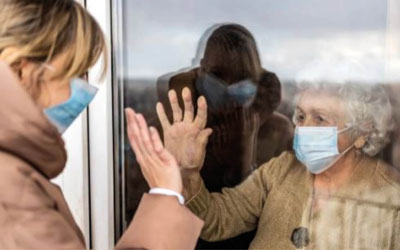The Omicron variant has caused a spike in COVID-19 cases, while there is a shortage of test kits and appointments.
Experts say if you think you have COVID-19 and can’t get a test, you should behave as if you do have the disease.
They recommend isolating for at least 5 days and getting extra rest along with drinking plenty of fluids.
They also say to monitor your symptoms and to seek medical help if you start to feel seriously ill.
You think you might have COVID-19, but you can’t get a test. Now what?
According to the experts, it may be best to assume you have COVID-19 and act accordingly.
“If you live in an area with widespread COVID-19 activity, many public health officials are now advis-ing that you assume that you have COVID-19 and act accordingly. If you have mild symptoms and are otherwise healthy without risk factors, then get plenty of rest and isolate according to local health department guidance,” Dr. Anne Liu, a specialist in infectious diseases at Stanford University in Cali-fornia, told Healthline.
“If you have underlying risk factors, contact your physician to find out whether you might be eligible for any treatments,” she said. “Keep in mind that many of these treatments work best if used earlier in infection. If you start to feel sicker, particularly with shortness of breath or other concerning symptoms, then seek medical attention.”
The Centers for Disease Control and Prevention (CDC) advisesTrusted Source that people who have symptoms of COVID-19 should get tested, as well as people who have been in close contact with someone who has COVID-19.
People who are not fully vaccinated with COVID-19 and are prioritized as part of community screening should also get tested, as well as people who aren’t fully vaccinated and have been referred for testing by their workplace, school, healthcare professional, or health department.
Rapid vs. PCR tests However, rapid antigen tests aren’t always easy to come by and testing appointments aren’t always available.
“Antigen testing picks up cases best if done more than once over several days. Antigen testing may be negative early on, even when symptoms are present,” Liu said. “PCR testing is more sensitive, turns positive sooner, and remains positive longer. But PCR availability is lower and turnaround time on tests is much longer.”










